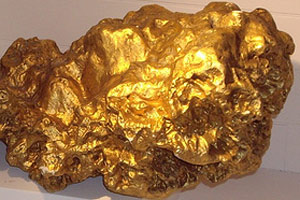Senator Jeff Bingaman of New Mexico has just introduced a mining reform bill in the Senate, bringing Congress one step closer to updating the nation’s most outdated public lands law, the General Mining Law of 1872. A similar bill from House stalled in the Senate last year, where Majority leader Harry Reid, the son of a gold miner, has been a powerful ally of the hard rock minerals industry. Mining companies are still allowed to remove minerals from public lands without paying a cent in federal royalties. As I reported in a recent profile of Reid, Nevada remains an anachronism in a region that is becoming much less tolerant of the America’s most polluting industry.
Bingaman’s bill is less progressive than a similar House measure, but might win key support from Reid and moderate Republicans. According to Velma Smith, the manager of the Pew Campaign for Responsible Mining, the bill proposes reducing the House’s proposed 8 percent royalty to something between 2 and 5 percent, to be set at the discretion of the Department of Interior. It would also impose a reclamation fee of .3 to 1 percent.
In what’s been a keen interest of Bingaman’s, the bill also asks the National Academy of Sciences to perform a study on uranium mining. Smith says uranium, which is the only energy mineral overseen by the mining law, may be moved to a leasing system. Environmentalists have been concerned that mining on any one of 1,200 uranium mining claims along the Colorado River could pollute the water supply for Las Vegas and Southern California.
In other important respects, the Senate and House bills are the same. Both call for stricter environmental permitting of mines, better ways for lands to be set off-limits to mining, and more financial assurances that mining companies will clean up after themselves. The cost of cleaning up abandoned mines in the U.S. is now estimated to be at least $32 billion.
Will Reid support the bill? “I really don’t know,” Smith says. “My sense was that Senator Bingaman’s office took a long time vetting this with a lot of people. I don’t see this as an extreme bill by any means. So I think there’s a chance for the industry and environmentalists to come together.”
















